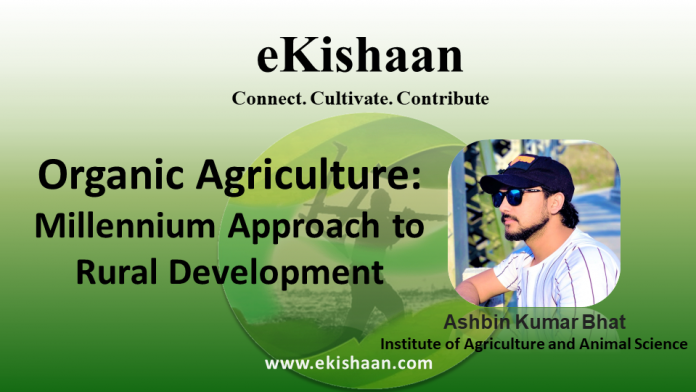Organic Agriculture: Millennium Approach to Rural Development
Whenever there comes the term agriculture, these days we are more focused on organic means. Not only agriculture but even the products we are using it, we would love if it is organic. Is the word `Organic` that weighty or it`s just us marking it on the words behind the experts.
The emerging market opportunities in the countries like ours are proving to be an effective means of approach even among small scale farmers. To be any effective, it has to be dealt with many production and marketing basis approach and for sure, organic agriculture has carried out those factors with very harmony. Application of those agronomic, biological and manual methods instead of synthetic inputs in a sustainable way which are environmentally sound, socially beneficial helps in benefiting not only simple farmers but also from traditional farming to any commercial farming. In many parts of Nepal, conventional farming approaches have made considerable inroads using potent fertilizers, pesticides and herbicides along with new hybrid varieties and irrigation. For small farmers, those practices may be less relevant but organic agriculture definitely can be. Organic agriculture can be chosen to often poor farmers who are inaccessible to modern Green revolution orientation. Even these days, we see Nepal’s projects and policies are focusing in designing to support organic and eco-friendly agriculture to solve many of the poor`s problems. So, let`s overview what organic agriculture can provide in real sense:
-
When transforming from intensive agriculture to organic agriculture, although labour costs are higher, yields may be reduced, input costs are lower but overall income is higher. In initial days yields seem lower but by the third year, it gets stabilized.
-
Farmers with certification of organic means tend to be giving greater reason to higher income which allows to be better from health, ideological and environmental point of view.
-
It can be the best source of improving soils, using fewer toxic chemicals, integrated livestock components, harmony with nature, benefiting in inputs making individual self-dependent.
-
Whether it`s for consuming or for marketing of foods, organic agriculture is best suited. It`s safety and quality assurance has made possible to be continuing strongly worldwide basis.
-
Organic agriculture is the excellent source of food security and farming diversification for income diversification.
-
This can help in contributing rural stability, greater distribution of resources, reduction of external energy consumption, efficient nutrient management, more labor opportunities for poor farmers, increased agricultural trade, dissemination of organic information, improving educational status on modern farming techniques, etc.
